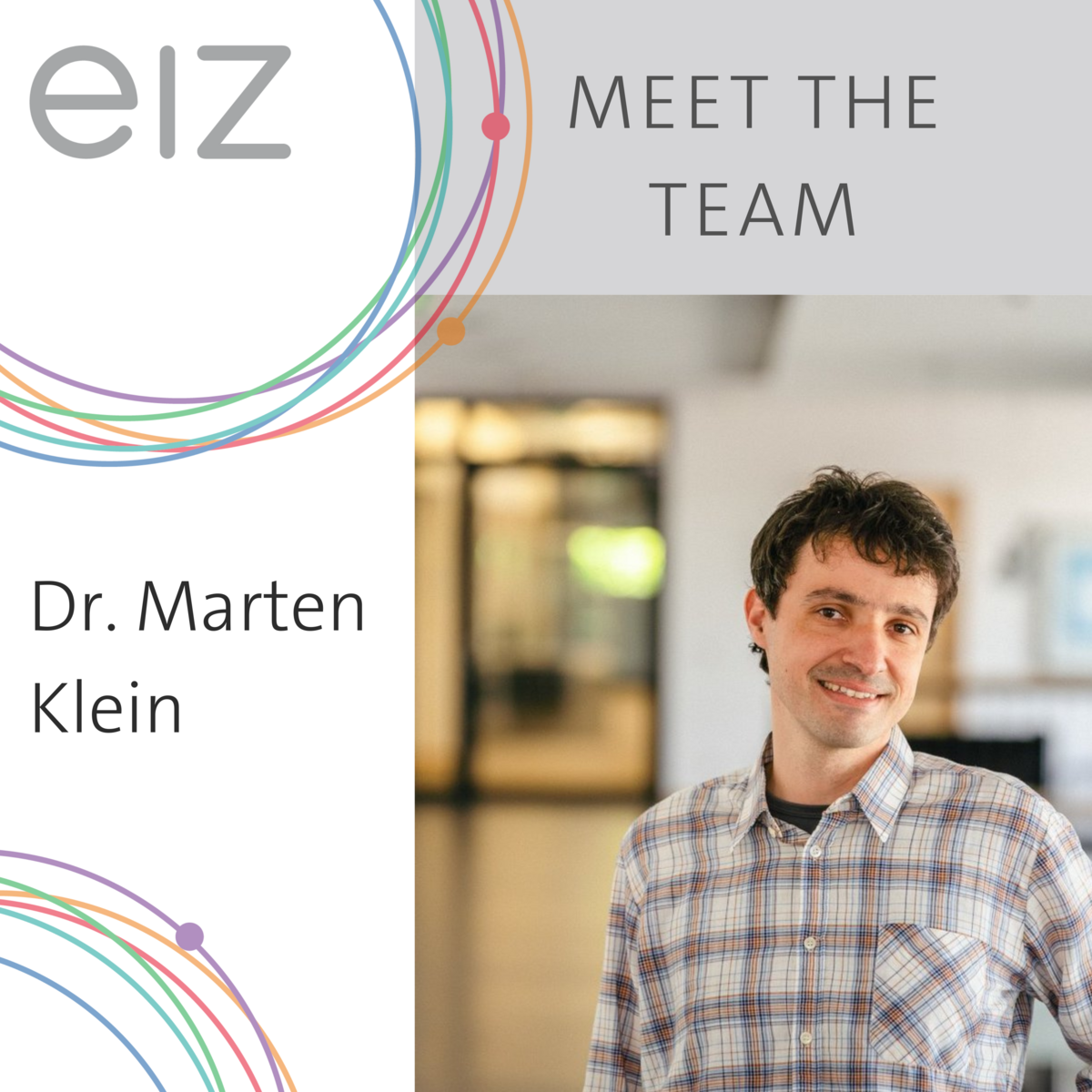Meet the team
Dr rer. nat. Marten Klein studied physics at TU Dresden (specialising in applied physics) and completed his doctorate in environmental engineering at BTU Cottbus-Senftenberg in 2016. From 2016 - 2022 he was a PostDoc at the Chair of Computational Fluid and Gas Dynamics at BTU Cottbus-Senftenberg. Since September 2022, he has been a junior research group leader of the Young Investigator Group (YIG) Advanced Modeling and Simulation of Transfer Processes for Next Generation Energy Systems at the Scientific Computing (SC) Lab of the Energie-Innovationszentrum Cottbus.
1. What topics are the scientists in your group working on?
We are working on the development of reduced computer models and new methods for the efficient but physically based prediction of transport and mixing processes in turbulent flows. Applications range from the modelling of small heat exchangers, to the description of time dependencies in gas and heat networks, to the present-day prediction of wind power at a site.
2. How does this research contribute to the energy transition?
New energy systems will be coupled multi-energy systems characterised by strong fluctuations. These fluctuations manifest themselves in the form of time dependencies that are not taken into account satisfactorily or at all in established modelling approaches. We are currently establishing various co-operations to not only develop academic models, but also to bring about innovations for applications. For wind turbines, the minute-by-minute prediction of available power is an unsolved problem, as wind speeds and wind loads can increase or decrease abruptly and are also distributed unevenly across a wind turbine. In heat and gas grids, flows interact with introduced fluctuations on different time scales. Our research helps to map volatility through improved modelling approaches for individual components. This forms the basis for new control strategies that ultimately enable the robust operation of coupled multi-energy systems.
3. Lusatia is undergoing major changes. What is your personal vision for Lusatia in 2050, what do you wish for the future development of this region?
I would like Lusatia to be perceived much more as an attractive place to live and work, but also as a centre of innovation and industry in the energy sector. For me, this also clearly applies internationally, with the energy transition being implemented in an exemplary manner as part of the structural change in Lusatia. Ecological and economic aspects must be balanced, but success would be good for the region.
4. What makes working at BTU special for you?
BTU is a comparatively small university, but as its only technical university it is of enormous importance for the region and the state of Brandenburg. However, this also means that it depends on the commitment of each individual, so it is important that you ‘lend a hand’. I experience this basic attitude among my colleagues every day and that's what makes BTU special for me.
5. What are your personal highlights in Cottbus? What should you definitely try out when you are here?
Experiencing the landscape and the changing city up close! A trip to the Merzdorf observation tower to look out over the developing Cottbus Ostsee, and then into the countryside, Branitz Park or the Spreewald. We also recommend a visit to the university library (IKMZ building) on the BTU campus and a trip to the city centre, e.g. the Diesel Power Station Museum (BLMK) or the Art Nouveau building of the Cottbus State Theatre.
Thank you, Marten, for the interview and all the best for your research work!
Contact us
Numerische Strömungs- und Gasdynamik
T +49 (0) 355 69-5127
kleinm(at)b-tu.de

